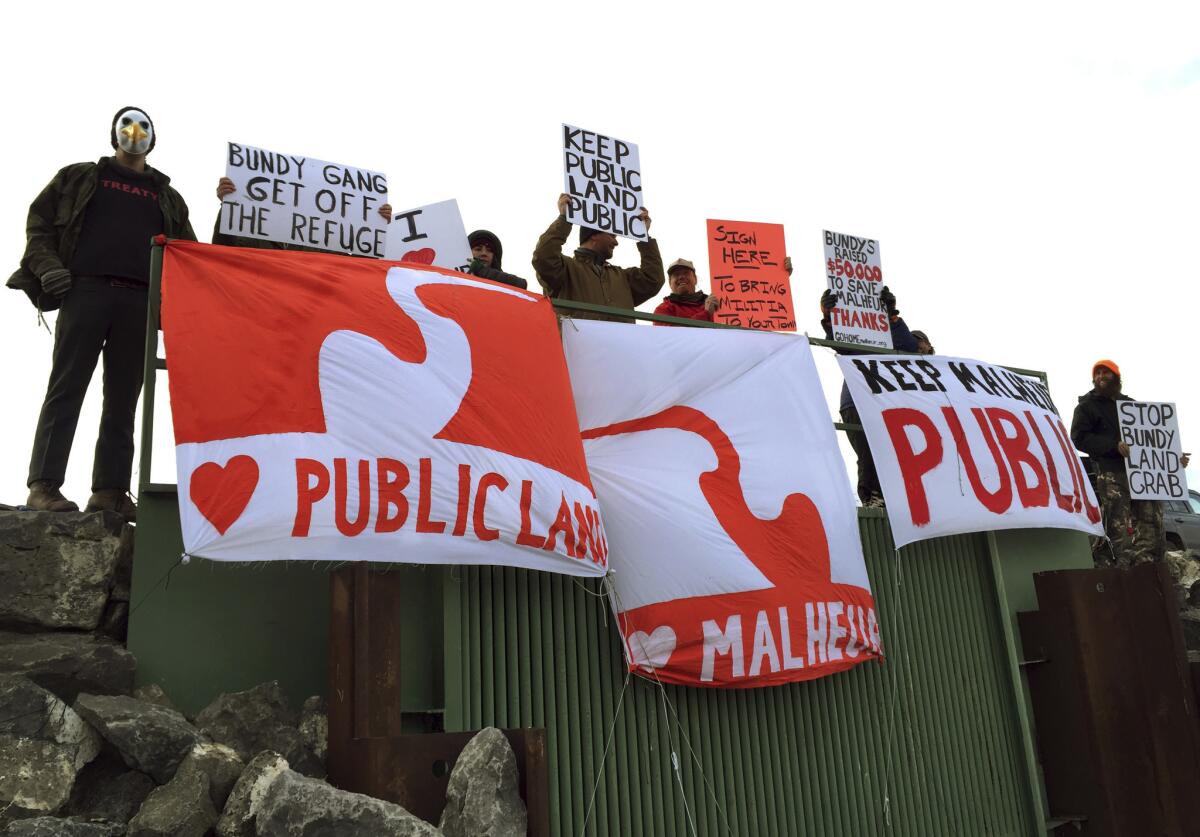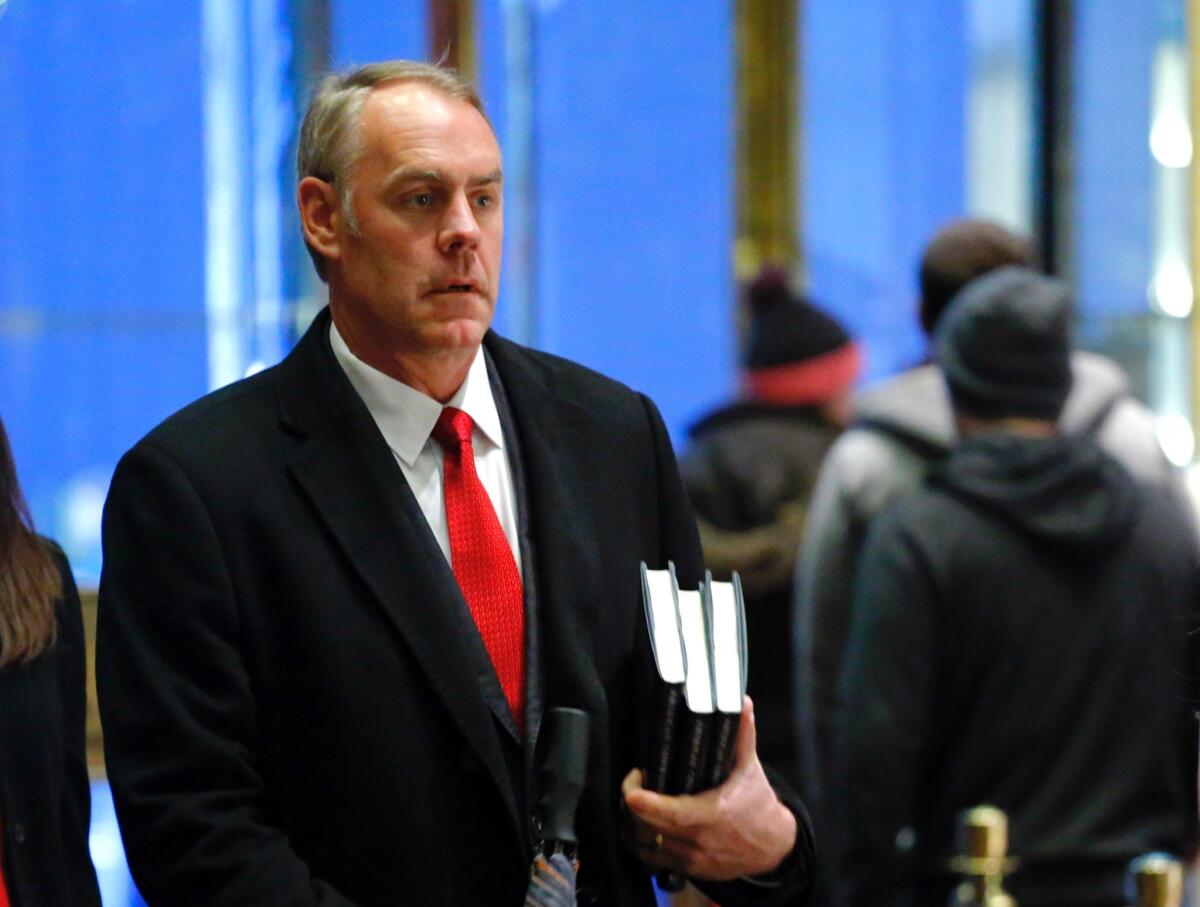Q&A: The battle for control of public lands: What will a Trump presidency mean?

- Share via
Advocates for more state control of public lands and fewer government regulations on energy development hope Donald Trump will be more receptive to their cause, which they say has been ignored during President Obama’s two terms. A look at some key questions:
What’s at stake?
Decisions about what activities are allowed on hundreds of millions of acres of federal land, more than half concentrated in 12 Western states. The landscape includes expansive deserts, snow-capped mountains and red rock canyons. The lands are treasured by outdoor enthusiasts and vital to cattle ranchers, oil companies and loggers. States such as Alaska, Idaho, Nevada and Utah, where federal lands account for the majority of their territories, have long complained that regulatory agencies pay too little heed to residents’ needs.
Where are the battle lines drawn?
Efforts to wrest control from the federal government are being waged in state legislatures and Congress and might wind up in court.
Dozens of demands for land handovers have surfaced in the West in recent years, with Utah pushing hardest. A law it enacted four years ago demanded that the federal government relinquish control of public lands in Utah by 2014. The deadline passed with no action, and the state has since spent about $2 million on outside attorneys to prepare a long-shot lawsuit. Utah’s GOP-controlled Legislature wants to proceed, but the state attorney general has yet to agree.

What do proponents of less federal control say?
Supporters, mostly Republicans, say Washington-imposed limits on use of natural resources deprive Western states of growth, jobs and tax revenue, a burden not shared by Eastern states where the federal government owns much less property. They argue that the federal government is a poor manager, citing overgrown forests ripe for catastrophic wildfires. They contend that states can balance conservation with energy exploration to protect outdoor recreation while stimulating local economies.
What do opponents say?
Opponents fear states would sell off lands that belong to all Americans and allow oil drilling, mining and clear-cut logging, ruining cherished landscapes. They consider federal land managers evenhanded protectors of valuable cultural and natural resources. They say state control would limit access for hunting, fishing and other recreation while splintering wildlife habitat. In a warning of what could happen without federal protection, the Southern Utah Wilderness Alliance ran TV ads this year with altered pictures of oil derricks near the state’s iconic red rock lands.
Where do the president-elect and his choice for interior secretary stand?
Trump’s stance is murky. He has pledged to honor Theodore Roosevelt’s conservation legacy. But he also promises to “unleash” energy production on federal property. Trump told Field & Stream magazine in January that he opposed transferring ownership to states because states might sell the land. But that same month, he wrote a guest newspaper column in Nevada endorsing state control, which the GOP platform supports, and vilifying “faceless, nameless bureaucrats” in federal management agencies.
Trump has offered the job of Interior secretary to Rep. Ryan Zinke of Montana, who has not said whether he will accept. Zinke has been critical of federal land management and wants more development of coal, oil and natural gas. But he’s an outspoken supporter of keeping the lands in federal hands and resigned as a GOP convention delegate over the platform’s opposition.
More to Read
Sign up for Essential California
The most important California stories and recommendations in your inbox every morning.
You may occasionally receive promotional content from the Los Angeles Times.













